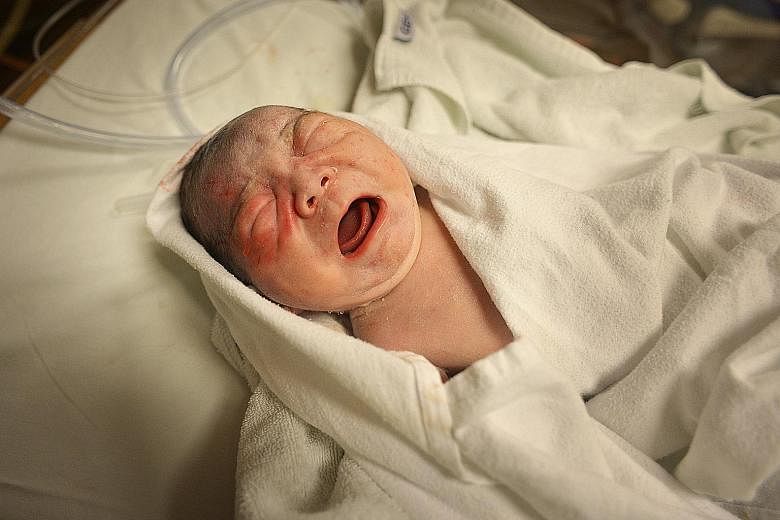Mothers around the world are wired to pick up and talk to their crying infants.
That is the most automatic response, compared with other behaviours, such as trying to distract or feed their babies, a study of nearly 700 mothers has found.
The scientists analysed video footage of the mothers, who were recruited from 11 countries across four continents, and whose behaviours towards their babies were recorded for an hour.
The brain responses of about 90 mothers from the United States, Italy and China were also analysed, which found that a baby's cries activated the supplementary motor area in the brain associated with the intention to move and speak.
The inferior frontal regions of the brain involved in the production of speech and the superior temporal regions linked to processing auditory stimuli were also activated.
A paper on the findings was published in the scientific journal PNAS recently.
Assistant Professor Gianluca Esposito, from the Nanyang Technological University's division of psychology and an author of the paper, noted that in rare cases, a baby's cries could trigger so-called "atypical" behaviours in mothers.
For instance, a mother might turn abusive, said Prof Esposito, and shake the baby violently to the point of causing severe brain injury known as shaken baby syndrome.
Earlier behavioural studies have also found that mothers with postpartum depression take longer to respond, and that their baby's cries need to be louder, longer and of a higher pitch.
"Understanding the brain mechanism related to the response to crying might give us some insight to understanding this atypical behaviour," he said.
Prof Esposito said the study is now being expanded to Singapore, and that his team is collecting data from families living in circumstances which could lead to behaviours that would not be considered normal. These include those with mothers who are suffering from postpartum depression or anxiety disorders.
Previous studies have also shed some light on the infant cry.
A study on 28 individuals by University of Oxford researchers published in 2012 found that a baby's cries triggers an early burst of activity in the emotional areas of the brain, which they said could mean that the sound of them is tagged as important even before our brains fully process them.
And last year, researchers from Flinders University who studied 48 sets of parents and their babies found that babies left to cry themselves to sleep may not suffer any chronic levels of stress.
Prof Esposito said: "Crying is the first and most important way a baby communicates with the world.
"Understanding it means being able to grasp what the baby is trying to convey, especially in the earlier months of their lives."

